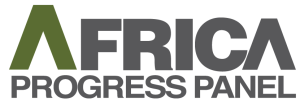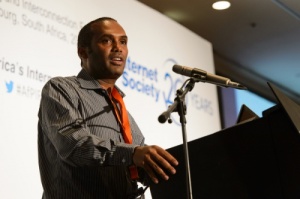 M-Net is delighted to announce the launch of a new channel, Zambezi Magic, on DStv channel 160 from Wednesday, 1 July.
M-Net is delighted to announce the launch of a new channel, Zambezi Magic, on DStv channel 160 from Wednesday, 1 July.
This exciting new channel, dubbed “the home to Southern African TV entertainment”, will treat DStv Premium, Compact Plus and Compact subscribers in Zambia, Zimbabwe,Botswana, Namibia, Malawi and Swaziland to a variety of quality programming from the southern tip of Africa.
“This channel is tailor-made with the Southern African viewer in mind and will offer the most sought-after archive content that has so far not been available outside of South Africa,” said the head of Zambezi Magic channel, Addiel Dzinoreva.
“We’re bringing our Southern African viewers content they have been asking for and most importantly, the channel will also build regional entertainment brands by showcasing entertainment productions from the various Southern African countries.”
Zambezi Magic will entertain viewers with riveting plots on award-winning soapiesGenerations, Muvhango, Isidingo, Zone 14, and Jacob’s Cross while getting a healthy dose of critically-acclaimed edutainment TV series, Intersexions and Yizo Yizo, that explore various societal issues and have sparked debates around issues like the HIV/Aids epidemic, love and relationships.
Fans of lifestyle shows will be spoilt for choice by the quality entertainment lined-up onZambezi Magic. Viewers will learn how to create scrumptious meals alongside the vivaciousSiba Mtongana, the host of Cooking with Siba, and watch as long-lost family and friends are reunited on the heart-warming Khumbul’ekhaya show dubbed, “the truth and reconciliation of the soul”. Sitcoms like Stokvel, City Ses’La, The Coconuts, Kota Life Crisis, Skwizas and It’s For Life will tickle viewers’ funny bones with their cheeky humour and dialogues packed with a razor-sharp wit.
Other shows that will keep viewers glued to their screens include Our Perfect Weddingwhich will get viewers into the wedding spirit, the African way, while football fans with score their way into the private lifestyles of the rich and famous African football stars on Goal Diggerz while the trio of Forever Young – Lungile Radu, Siyabonga Ngwekazi andThomas Gumede – will showcase what it’s like to be a young go-getter in the world of entertainment.
Zambezi Magic will also feature exciting films from the Lokshin Bioskop film library with titles like Mama stole my Hunk, Poppy, Mampara, Our House, When love Hurts, Uthando Ongapheli, Mamoruti and Tin City billed for the month of July.
Viewers will also get a chance to get interactive on social media with a trendy, new lifestyle show, The Kool Roc Show from Zambia.
“We’re very excited that this channel will be showcasing its first local production, The Kool Roc Show from Lusaka. Going forward, there will be many more local shows from other Southern African countries added to the channel. Our ultimate goal is to be the go-to channel for quality Southern African produced shows and to provide viewers with a channel they can trust to bring local stories made in their own backyards,” added Dzinoreva.
The CEO of MultiChoice Africa, Tim Jacobs, also reinforced MultiChoice Africa’s commitment to support local productions.
“The launch of Zambezi Magic to the DStv platform is a significant one for us because this is proof that we listen to our viewers’ requests for content that is closer to home. Adding a channel that includes local productions also strengthens our association with the burgeoning entertainment industry in Southern Africa and reinforces our role in developing and supporting African production companies,” stated Jacobs.
Zambezi Magic will go live at 20:00 CAT on 1 July on DStv channel 160 and will be open to DStv Premium, Compact Plus and Compact subscribers.
For more information, follow Zambezi Magic on Facebook: Zambezi Magic TV; Twitter@zambezimagictv; Instagram zambezimagictv and WeChat ZambeziMagic.














